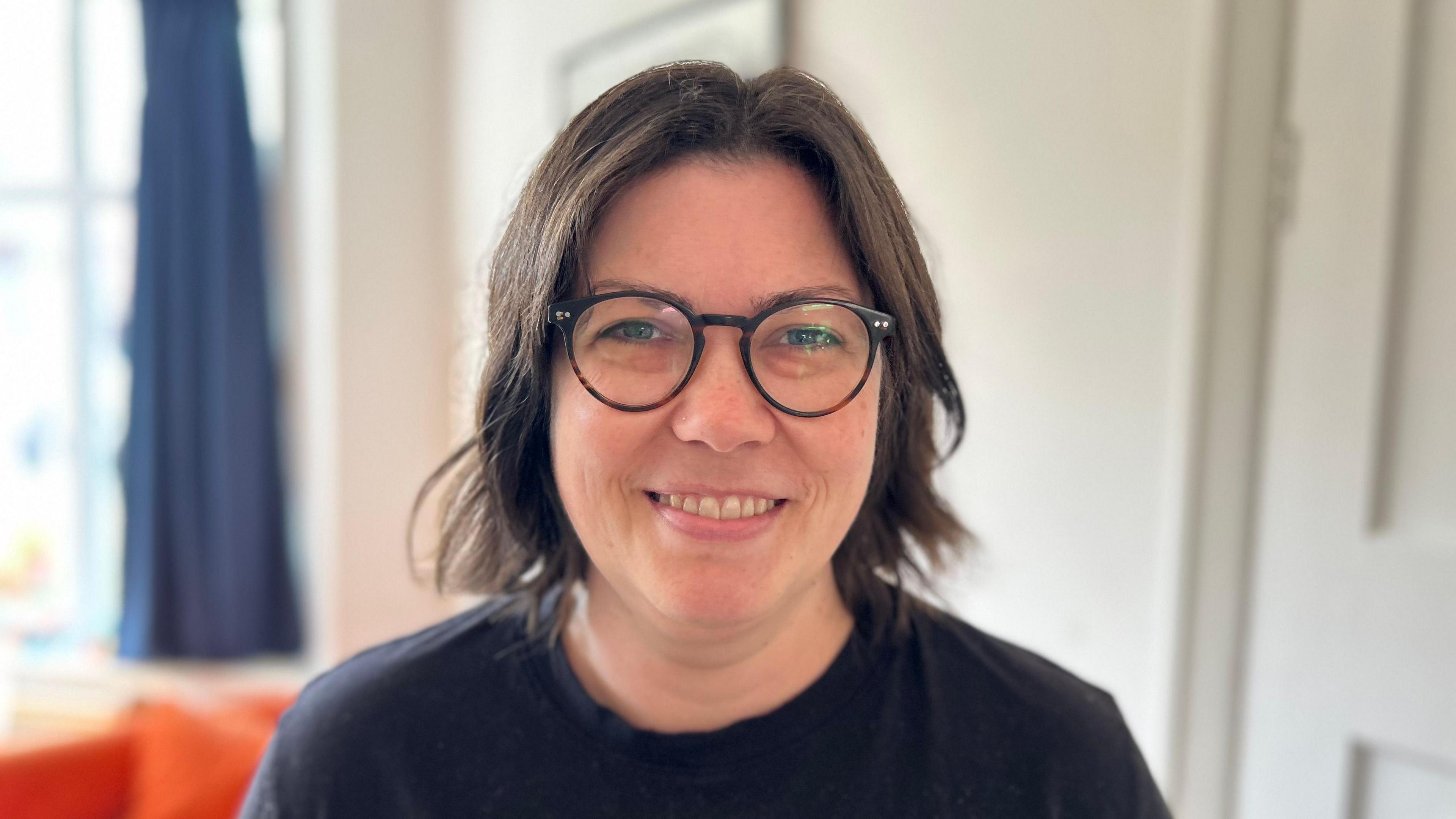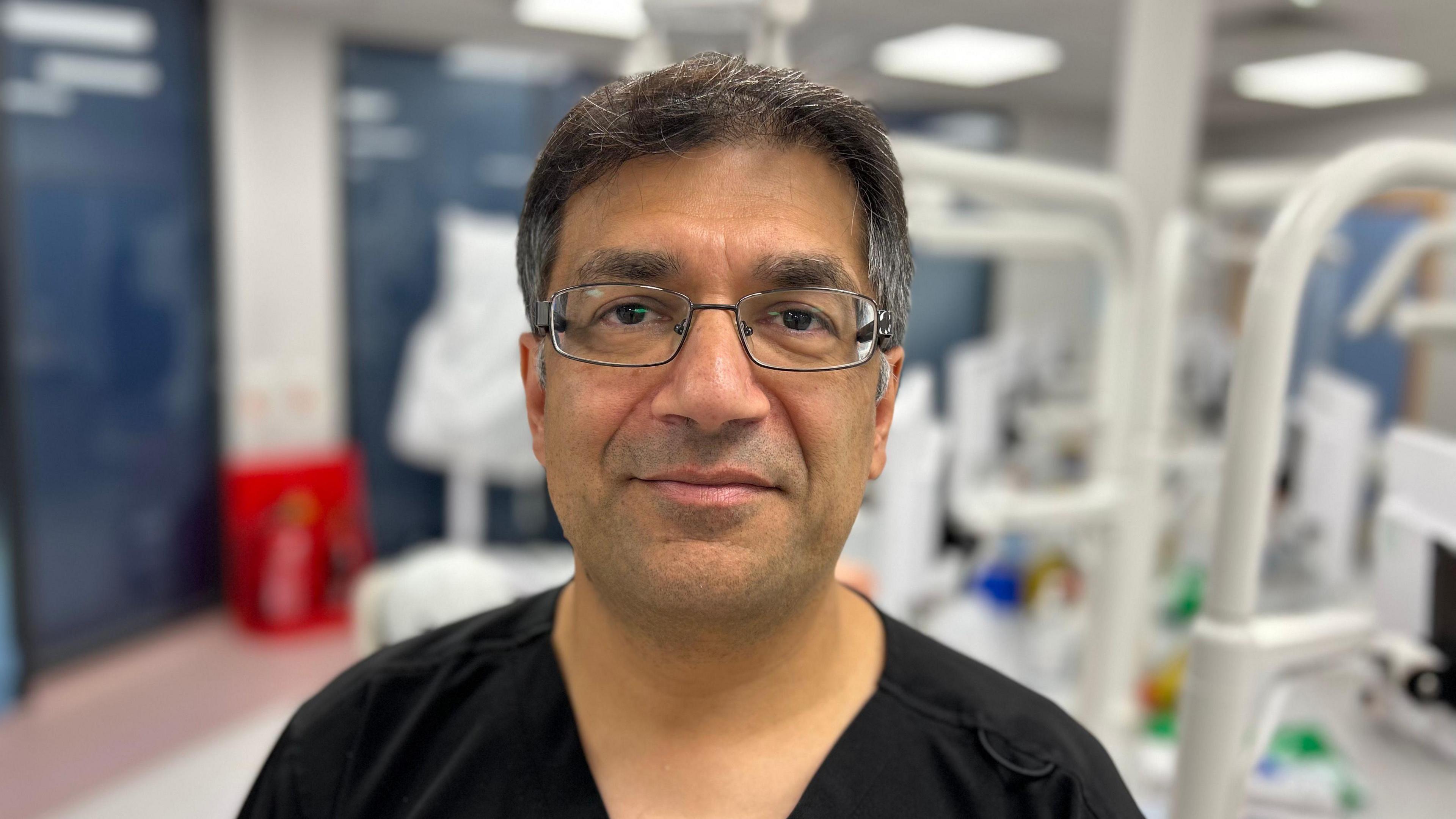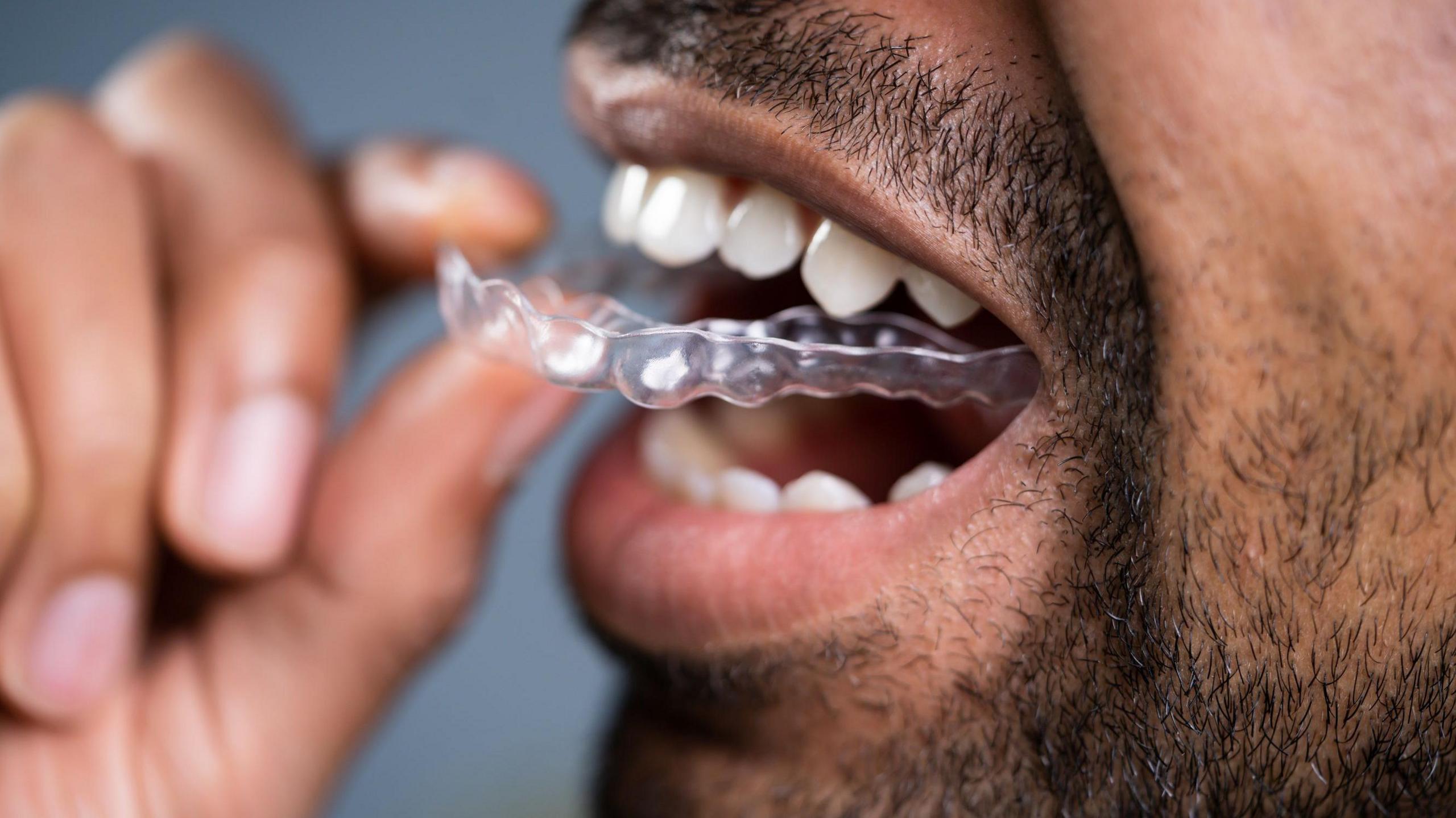Teeth-grinding sufferer finally 'breaks cycle'

Molly Haworth, from Leeds, says she has finally "broken the habit" of teeth-grinding thanks to the guide
- Published
A woman who resorted to botox and was prescribed anti-depressants in a bid to solve her painful teeth-grinding has praised a university dental health expert's self-help guide for finally tackling the problem.
Molly Haworth, from Leeds, said she had been grinding her teeth since she was a teenager, and it had caused seizing, tight and tense muscles, worn down teeth and intense pain.
"It would impact the things I could eat. On the worst days, I would struggle to eat solid foods or really chewy foods. Some days I would just have a liquid diet," she said.
However, Ms Haworth said a guide by Dr Vishal Aggarwal, from Leeds University, had helped her "break the cycle, break the habit".
Ms Haworth, now a teacher and mum of three, said the problem had begun during her teenage years and eventually led to serious pain in her head and shoulders.
"When I was about 13 or 14, someone noticed I was grinding my teeth at night," she explained.
"I hadn’t really noticed it as a teenager, but as I got a bit older I noticed the grinding was causing seizing, it was tightening, the muscles were really tight and tense."
She said that as time went on, it caused "really tight pain and a headache that bands around your whole head".
"You can get tight shoulders. I didn’t necessarily have any teeth pain – it's more muscular, skeletal kind of pain, earache I would get as well."

Dr Vishal Aggarwal says teeth-grinding can be “hugely debilitating” for some people
Ms Haworth said the pain affected her so badly at times that she could not open her mouth properly and she regularly took painkillers to cope.
"I was also prescribed anti-depressants, not for depression but because they relax your muscles.
"I was prescribed an anti-depressant that I took once and the side-effects were so horrendous, I had to take a day off work."
She said she had even chewed through mouth guards and a dentist eventually offered her botox in an effort to try and solve the problem.
"They inject botox into your muscles in your face. I had six injections at once, which then freezes them to stop you being able to physically grind any more.
"There are negative side effects – it can cause drooping in your face and it only lasts for maybe three months, so every six months you have to go back and have it again. It only treats the pain, it doesn’t treat the cause."
Eventually, Ms Haworth's dentist pointed her in the direction of Dr Aggarwal, clinical associate professor at the University of Leeds School of Dentistry.
She said Dr Aggarwal introduced her to the self-help manual he had developed with a group of patients also being treated by him, external at his clinics in Leeds and Manchester.
"He taught me some massage techniques, general life stresses management techniques, there are ways to make you more mindful of what you do and when you’re doing it," Ms Haworth said.
"Then there’s some sleeping positions you were able to adapt – so sleeping on your back opens your jaw. That has been less successful for me because I am a tummy sleeper."

Dr Aggarwal said mouth guards could actually exacerbate teeth-grinding rather than helping
Dr Aggarwal explained that teeth-grinding could be “hugely debilitating”.
“People can’t eat, they can’t talk and they get worried about the pain," he said.
"If your jaw suddenly starts clicking you get worried about what’s causing it.”
Dr Aggarwal said commonly advised solutions, such as mouth guards, could actually make the problem worse - as they encouraged the jaw to clench.
He described how the manual had even helped patients as young as 14.
“I had a girl come to the clinic who was locking and clenching, not going to school – just staying in a dark room.
"She had telephone appointments, and using the manual she was able to go back to school and get her life back,” he said.
Ms Haworth said the self-help guide had helped her where everything else had failed.
"Botox is a quick fix for two months, but then you have to go again and again. Medication might be a quick fix but then you have to take it for the rest of your life. Whereas this actually broke the cycle, broke the habit.
"Although you do have to put some work in, it was probably less work and time than I had spent going to see dentists about the problem."
Listen to highlights from West Yorkshire on BBC Sounds, catch up with the latest episode of Look North or tell us a story you think we should be covering here, external.